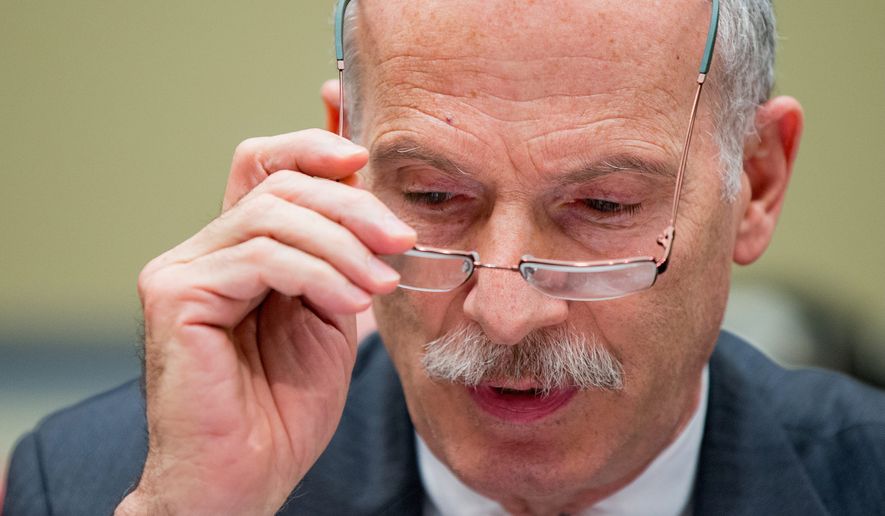The D.C. Council approved legislation that removes a proposed tax on advertising sales from the city’s $16.7 billion budget on Thursday, two days after heated debate over the measure prompted lawmakers to postpone a final vote on the budget.
Council Chairman Phil Mendelson on Thursday introduced an amendment to slash the $18 million in revenue the 3% ad sales tax would have generated after his colleagues had expressed displeasure over the tax and the legislative process during Tuesday’s session.
“The amendments I am circulating today will reverse a policy choice that I now regret — a new tax,” Mr. Mendelson, at-large Democrat, said Wednesday night in a statement. “I overestimated the effect my proposing this tax would have to discourage colleagues’ desire to raise other taxes. At issue, fundamentally, is whether our Council will succumb to dubious demands to tax-and-spend.”
To scrap the tax, the council approved Mr. Mendelson’s amendment to cut $4 million from the Department of Behavioral Health; change the funding source for $11 million worth of capital projects; slash $2.8 million from the Department of Buildings Establishment Act of 2019, which has not yet been implemented; and covert $3.5 million for the Emergency Rental Assistance Program (ERAP) and $1.8 million in homelessness outreach from recurring expenses to one-time outlays.
Council members Brianne Nadeau and David Grosso opposed the amendment. Ms. Nadeau, Ward 1 Democrat, criticized its impact on human services programs and the process by which the tax was repealed. Mr. Grosso, at-large independent, argued that the “measly” tax was needed to bolster funding for community-based mental health services.
Ms. Nadeau noted that Mr. Mendelson used “pay-go” funds to cover the $18 million gap, which he had prohibited his colleagues from tapping into, and said that his amendment affects more than $19 million for rental assistance, homelessness outreach and transition housing.
“I was not invited to the eleventh-hour meetings held behind figurative locked doors in small enough groups to avoid open meeting requirements to make decisions about the people’s budget,” Ms. Nadeau said. “I didn’t receive a phone call asking for my input despite cuts being taken from homeless outreach and ERAP, programs under my purviews as chair of the committee on human services.”
On Tuesday, Mr. Mendelson proposed an amendment to clarify that the intent of the proposed tax was to tax the sale of advertising space not the creation of advertising, which was how it was originally written. That amendment called for decreased funding to the city’s public library system.
His colleagues sharply criticized that amendment, saying it would hurt public libraries and did not address concerns about how the advertising sales tax would impact local newspapers and small businesses. They also chided it as another example of the consequences of conducting tax policy without input from the public and deliberation.
Debate over the amendment became so unproductive that the chairman proposed taking an hour break to find the funds to cut the tax, and then ultimately recessed the meeting until Thursday.
Once the council scrapped the ad sales tax on Thursday, they unanimously voted to approve the Fiscal Year 2021 Local Budget Act of 2020, which includes $50 million to repair public housing and a $15 million cut to the Metropolitan Police Department’s budget.
The lawmakers will vote on the accompanying budget legislation at their next meeting on Tuesday.
• Sophie Kaplan can be reached at skaplan@washingtontimes.com.




Please read our comment policy before commenting.